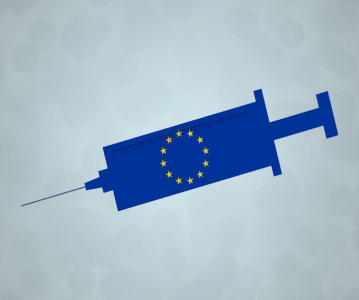Pew and Other Groups Identify Potential Measures to Address Drug Shortages

Pew and other health care organizations have released a report exploring measures that should be considered to address the ongoing issue of drug shortages in the US, which impacts lifesaving medicines including antibiotics, chemotherapy and cardiovascular drugs. The report summarizes manufacturing, regulatory, and economic issues related to drug shortages, as well as potential solutions identified at a 2014 Summit attended by 22 stakeholder groups, including health care professionals, nonprofit organizations, industry, public interest and government agencies.
The report explores the potential manufacturing, economic, and regulatory causes of drug shortages, and considers several possible solutions that merit further exploration, including
• Improving quality systems in pharmaceutical manufacturing to better prevent production problems that can lead to shortages by encouraging companies to foster a corporate quality culture, and use FDA’s set of quality metrics to support early collaboration between manufacturers and the agency.
• Identifying regulatory efficiencies, such as synchronizing reviews by regulators in different countries to shorten the overall time for full approvals for facility upgrades.
• Allowing for commercialization of trial batches of drugs that meet quality specifications to help mitigate losses during the approval process for upgrades to plants or production lines.
• Incentivizing manufacturer investments in capacity and reliability by increasing contractual penalties for failing to supply a product, and also allowing price increases.
• Supporting the market through better guarantees of demand by committing to the purchase of specified volumes of drugs vulnerable to shortage, either by a group purchasing organization or through a government program.
• Establishing limited and/or shared exclusivity agreements to incentivize companies to produce needed drugs where there are no active producers.
• Standardizing commonly used doses and concentrations in unit-o-fuse packaging to reduce waste and avoid contamination.
The 2014 Drug Shortages Summit was organized by the American Hospital Association, the American Society of Anesthesiologists, the American Society of Clinical Oncology, the American Society of HealthSystem Pharmacists, the Institute for Safe Medication Practices, and The Pew Charitable Trusts. Previous summits
were held in 2010 and 2013.
Related News
-
News Patients vs Pharma – who will the Inflation Reduction Act affect the most?
The Inflation Reduction Act brought in by the Biden administration in 2022 aims to give better and more equitable access to healthcare in the USA. However, pharma companies are now concerned about the other potential costs of such legislation. -
News CPHI Podcast Series: What does the changing US Pharma market mean for industry and patients alike?
In this week's episode of the CPHI Podcast Series Lucy Chard, Digital Editor for CPHI Online is joined by James Manser to discuss the political and market changes in the US pharma field. -
News CPHI Barcelona Annual Report illuminates industry trends for 2024
The CPHI Annual Survey comes into it’s 7th year to report on the predicted trends for 2024. Over 250 pharma executives were asked 35 questions, with their answers informing the industry landscape for the next year, spanning all major pharma marke... -
News Which 10 drugs are open to price negotiation with Medicare in the USA?
The Centres for Medicare & Medicaid Services, under the Biden administration in the USA, has released a list of the 10 drugs that will be open to price negotiations as part of the new legislation under the Inflation Reduction Act (IRA). -
News EU Medical Devices Regulation causes unintended disappearances of medical devices for children, doctors state
Doctor groups and associations have appealed to the EU to correct the EU Medical Devices Regulation law that may cause unintended shortages of essential drug and medical devices for children and rare disease patients. -
News 10 Major Drug Approvals So Far in 2023
Last year, 37 novel drugs were approved by the FDA, this was a high number for such a category, and covered many fields including oncology, demonstrating how promising further research is, and how it is only continuing to build. To date, there are alre... -
News Detecting Alzheimer's disease with a simple lateral flow test
A novel rapid diagnostic test for early-stage Alzheimer's disease has been developed using a biomarker binder from Aptamer Group along with technology from Neuro-Bio, the neurodegenerative disease experts. -
News CPHI Podcast Series: outsourcing and manufacturing trends
Listen to the CPHI Podcast Series this June to hear Gil Roth of the PBOA speak with Digital Editor Lucy Chard about the biggest trends and topics to watch in pharma outsourcing and manufacturing at the minute.
Position your company at the heart of the global Pharma industry with a CPHI Online membership
-
Your products and solutions visible to thousands of visitors within the largest Pharma marketplace
-
Generate high-quality, engaged leads for your business, all year round
-
Promote your business as the industry’s thought-leader by hosting your reports, brochures and videos within your profile
-
Your company’s profile boosted at all participating CPHI events
-
An easy-to-use platform with a detailed dashboard showing your leads and performance







